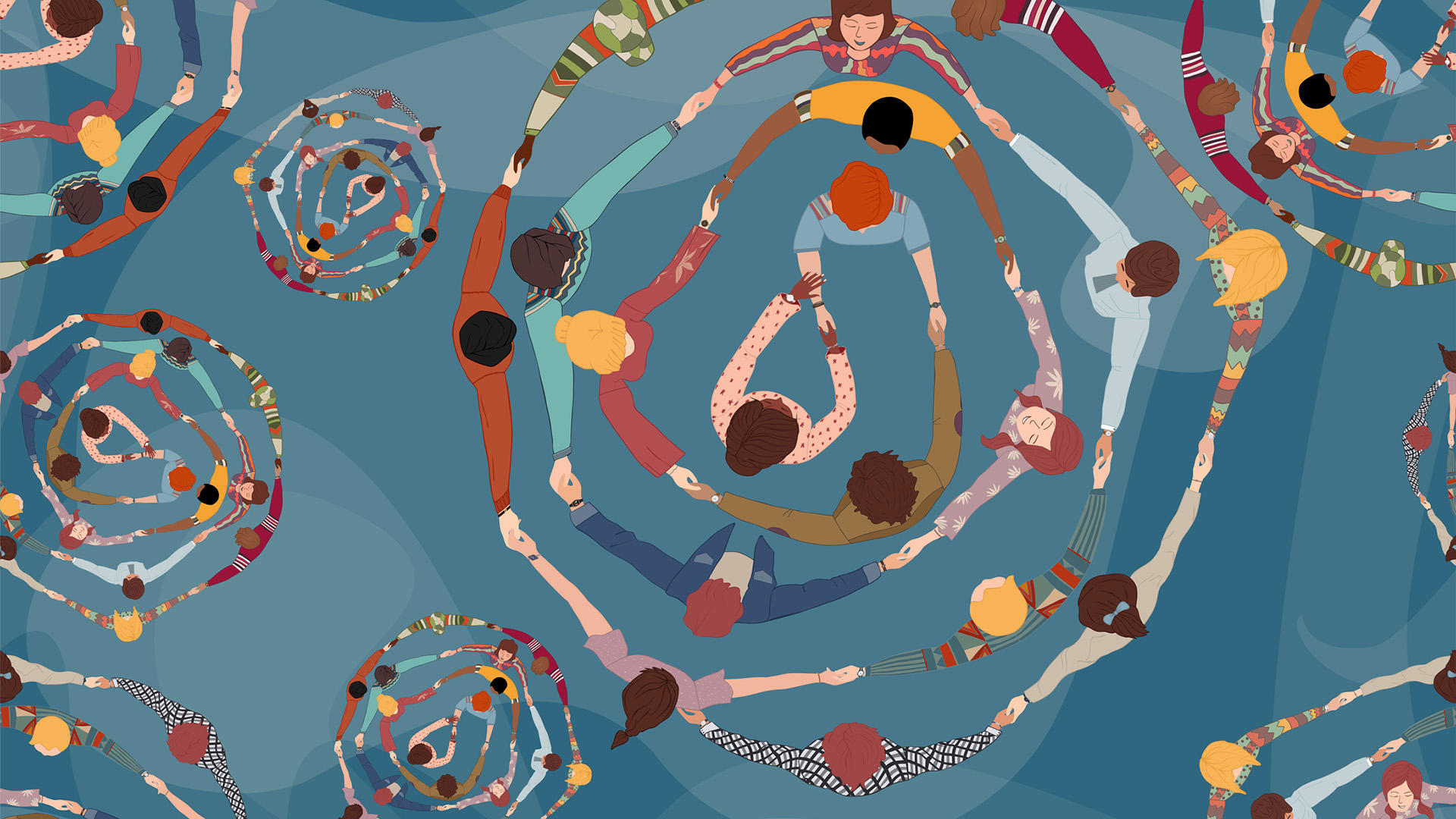The first thing I noticed about Jillian Johnsrud was the peace in her voice. Next, the way the sounds of her children playing outside in the background seemed to serve as an accompaniment to our conversation rather than a distraction.
I’m not sure what I expected, but it hadn’t been a discussion so gentle, so unhurried. As I reflect on why, I can’t quite put my finger on it. Maybe I thought that Johnsrud would be more buttoned-up, someone who spoke with a tone that made clear she preferred spreadsheets to spontaneity.
But then, that would have been a misunderstanding on my part, wouldn’t it? The whole reason I was talking to Johnsrud was a decision she’d made: the choice to opt out of a traditional approach to work and income. That is to say, I suppose, the choice to opt out of a traditional approach to American life.
I’d venture to guess that my logic went like this: Johnsrud is a Financial Independence (FI) progress coach who achieved her own financial independence at the age of 32. Her fiscal journey began at the age of 19 when she had $55,000 in debt and a dream of financial freedom. Johnsrud didn’t receive a life-changing inheritance or win the lottery. Instead, she and her husband worked for longer than a decade to pay off their debt, buy a home with cash, and bring four adopted and two biological children into their family. They set their sights on travel and flexibility. Hence the background chatter and little shouts of glee from their children — they were running around a beach campground they’d call home for the next little while.
My best guess is that Johnsrud’s remarkable financial achievements are where my thinking went awry. I am 35 years old and nowhere near financial independence. I’m a freelancer. My husband is a church planter. The idea of financial stability, or being able to help our two sons pay for college, is typically about as big as I’ll let myself dream. Independence seems like something for other people — people with a different type of grit or work ethic or mindset.
In other words, I have typecasted those who have achieved financial independence without family wealth or highly lucrative jobs as more serious, diligent, and fiscally responsible than I am. I’m typing these words from my couch in a pair of ripped jeans and a Fleetwood Mac t-shirt. Surely the financially independent are all slacks and blouses, desks and digits, at least until their early retirement begins. Right?
A movement of (maybe) millions
Johnsrud is one of the hundreds of thousands, perhaps millions, of people who consider themselves a part of the Financial Independence / Retire Early (FIRE) movement. The movement promotes extreme savings — often 50 to 75 percent of one’s income — and intentional investing. Many proponents of FIRE aim to retire in their 30s or 40s, decades earlier than most American workers. They might drive their cars for years, make those extra mortgage payments you’re always hearing about, or vacation in national parks rather than big-expense theme parks. They might, on the outside, appear poor. In fact, they’re working toward the type of long-term lifestyle freedom that only saved money can buy.
 Because FIRE is a lifestyle choice and not a club with a census, it can be difficult to nail down exactly how many people belong to the movement. But FIRE certainly isn’t tiny, especially given how countercultural its message is. The “Financial Independence / Retire Early” subreddit boasts 1.9 million members. Its daily discussion threads feature lively conversations that I find alternatingly enlightening (the differences between a traditional and Roth IRA), intriguing (disagreements over how much it really costs to raise a child), and mind-numbing (“I Bonds vs. High Yield Savings Accounts vs. CDs”).
Because FIRE is a lifestyle choice and not a club with a census, it can be difficult to nail down exactly how many people belong to the movement. But FIRE certainly isn’t tiny, especially given how countercultural its message is. The “Financial Independence / Retire Early” subreddit boasts 1.9 million members. Its daily discussion threads feature lively conversations that I find alternatingly enlightening (the differences between a traditional and Roth IRA), intriguing (disagreements over how much it really costs to raise a child), and mind-numbing (“I Bonds vs. High Yield Savings Accounts vs. CDs”).
The message threads are packed with acronyms. I’m familiar with some of them. I know that “IRA” means Individual Retirement Account and “AGI” stands for Adjusted Gross Income. Others are new to me, even if I am familiar with the concepts they describe, such as “MFJ” standing in for Married Filing Jointly and “LCOL” representing Local Cost of Living.
A quick glance through the threads reveals the typical cast of virtual characters: the experts, the curious, the people who are there to judge, and the ones begging them not to do so. One poster, who is new to the ways of FIRE, confesses that his household spends $20,000 per month. He acknowledges this is ridiculous while simultaneously imploring his fellow Redditors to please show him some mercy — he’s trying to help his family become more financially wise while also, as he puts it, trying to stay married.
The Reddit threads seem to have a different tone than the one I heard from Johnsrud. Maybe that’s the nature of the medium. Johnsrud and I had a one-on-one phone conversation. The subreddit is, perhaps by nature, not built for the same type of slow kindness. The threads are action-packed and fast, which, come to think of it, is exactly how I would have described the FIRE lifestyle before I took a closer look.
Love life now?
The FIRE movement’s origins trace back to 1992 when authors Vicki Robin and Joe Dominguez published a book called Your Money or Your Life. As the title suggests, the book prompts readers to consider their relationships to money so that they could take steps to “transform” those relationships for the sake of a “life you love, now and in the future.”
“It means shifting from being a victim of money and the economy to making conscious choices,” they write. “Anyone can do this.”
My subconscious immediately raises a red flag at those final words. “Anyone can do this.” Really? The same way that anyone can become the top salesperson in an MLM or anyone can have six-pack abs if they complete a four-week core strength program that inevitably ends with a call to pay for the next program, and another after that?
This type of messaging clearly makes me wary. I know just enough about economic injustice to be annoying at a dinner party when someone complains that no one wants to work anymore. But I don’t know enough to scrutinize Robin’s and Dominguez’s claims with the level of assessment they warrant.
That doesn’t stop me from feeling unconvinced that someone who is food insecure or jobless could pursue the FIRE lifestyle successfully. And it doesn’t stop me from recalling something Longform cofounder Aaron Lammer said while interviewing writer Rosecrans Baldwin on an episode of the Longform Podcast.
The episode features Lammer and Baldwin discussing a reported piece Baldwin did for GQ called “My Life Cleanse: One Month Inside L.A.’s Cult of Betterness.” In it, Baldwin describes his immersive experience during a Mastery in Transformational Training (M.I.T.T.) workshop. When Baldwin signed up for the $700 workshop — the first of many that M.I.T.T. members would try to persuade him to pay for — the salesperson promised him “catharsis.”
What Baldwin actually experienced was five days of being controlled, emotionally manipulated, and pushed to the point of extreme exhaustion. As Baldwin explains his article and the ethos of M.I.T.T., Lammer reflects on it and many similar organizations (or cults, if you want to get critical), and summarizes their message as: “You are your own fault.”
If there’s any cynicism I brought to my investigation of the FIRE movement, any jaundice to my eye, it’s something in that sphere. I wanted to know if pride and self-condemnation rested at the heart of the movement. I wanted to know if achieving financial independence was inherently tied to a ruthless pursuit of personal excellence.
I, an eldest child, pastor’s daughter, and pastor’s wife, have had plenty of my own experiences with exhausting myself in order to meet an arbitrary standard. I’d love to learn how to put a million dollars in the bank over the next 15 years. But if the steps for doing so require me to enslave myself to a master who will never look on me with love, I’d rather work until I die.
Treasure in Heaven
Two thousand three hundred fifty. That’s the number of Bible verses that refer to finances or possessions. Around 15 percent of Jesus’ preaching, including more than 10 of his parables, center on money. Theologians and commentators typically explain the emphasis this way: How people save, spend, and give their money tends to communicate quite a bit about their hearts. “Where your treasure is, there your heart will also be,” and all that.
At first glance, the biblical approach to money may seem like it’s in conflict with the FIRE movement. Don’t FIRE principles result in treating finances as the ultimate treasure?
Actually, Johnsrud says, FIRE principles can empower Christians to prioritize money exactly where it belongs: in a place that does not generate stress, anxiety, or worry, but instead is defined by peace. She thinks a lot about the Lord’s Prayer.
“Especially this idea of kingdom come. Thy will be done, on earth as is in heaven,” she said. “I wonder how here [on earth] should be more like there [in eternity]. What are our finances in heaven like? Are we stressed about making the mortgage? Are we obsessed with accumulating more? Or are we just doing our thing, doing what we’re supposed to be doing, and how [we are] fed and sheltered is like a ‘birds of the air don’t stress about that’ vibe, right?”
If this sounds a little too zen, remember, Johnsrud is the same person who gave extreme attention and dedication to her finances for years. She’s neither laissez-faire about money nor does she seem to be trying to manifest a version of reality that, in fact, cannot exist on this side of heaven. Instead, she’s simply trying to give money the place in her life she thinks it deserves.
“I want to be able to focus on the things that actually matter to me,” she said. “I really want to have time, attention, and emotional energy for the things that I feel called to, for the things that I feel gifted at. And I want money to kind of be a very soft white noise in the background that helps make it all happen but doesn’t take up a lot of my time or attention.”
It occurs to me that the FIRE pursuers I’ve spoken with are people who could have looked at their financial situations and said that financial independence simply wasn’t in the cards. Johnsrud and her debt, for example, or an educator in New York who goes by Ms. Black on her website, podcast, and Instagram account all called Staying in the Black.
Years ago, as a young single mom leading her first classroom, Black began to learn about how she could make the most of her finances from her buddy teacher. Coming from a law enforcement family, Black was aware of pensions and already familiar with the idea of retiring earlier than most people — to her, 55 sounded old for retirement because her law enforcement family members had accessed retirement earlier. The buddy teacher taught her that there was more available than just a pension. She encouraged her to max out her 403b (more or less a 401k for nonprofit workers), reminding her that just because she was making the most money she ever had, she didn’t have to elevate her lifestyle accordingly. Instead, she could maintain her cost of living while saving for the future she wanted for herself and her son.
That doesn’t sound like ruthless rigor to me. It doesn’t sound like condemnation or cultishness. In fact, it sounds like the opposite, like empowerment and agency and freeing oneself from socially constructed norms about work and lifestyle. It sounds like focusing one’s energy on the things that matter the most.
In that sense, I’m drawn to it. I’ve always been a bit of an individualist, a bit of an outside observer wondering if the way that society goes about its business is really the most efficient, beneficial, or meaningful. Perhaps this is a product of my upbringing: homeschooled in the country from kindergarten through 12th grade. Perhaps it’s a product of my determination to build a life that meant something to me on a foundation of love and purpose: married at 20, baby at 24, my husband and I stitching together hodge-podge checks from our four part-time jobs in order to pay rent and tuition.
Once, when I was pregnant, my husband and I went out to a dinner we couldn’t really afford but really needed. When we came home to our one-bedroom apartment in seminary housing, there was an envelope on the entry floor addressed to me. I opened it to find a note from our neighbors. I’d been giving their daughters introductory piano lessons at no cost, in part because it was my first time teaching piano and I wasn’t sure if I knew what I was doing (future experiences trying to teach my own children would indicate that I did not, in fact, know what I was doing) and in part because I knew that this family, like most of us who lived in the complex, didn’t have money to spend on a luxury like piano lessons times three.
Inside the envelope, I found a thank you note and some $20 bills. As I counted them, I realized they totaled within a few dollars of the amount my husband and I had spent on dinner that night.
These are the types of memories that come to mind when I think about the FIRE movement. Would its members tell me I shouldn’t have gone to dinner? Would they say I should have found a way to have a date night at home instead? Would they say that coming home to the money wasn’t what I saw it to be — a reminder that God knows my every need, relational and financial alike — but a coincidence, or a lucky break that would help me pay the credit card bill, thereby reinforcing the bad habit of having a credit card at all?
The subreddit and the people I talked to seem to have mixed answers on this, which I take as a positive sign that the movement is inherently neither cultish nor extremist, but can allow for the necessary flexibility that anything involving humans requires.
Many FIRE followers would say that credit cards are not wise. Frankly, that’s pretty hard to deny. I grew up in a household that taught me how to use them wisely (the above memory excepted, perhaps) for the sake of leveraging points and earning air miles. But such an experience isn’t the norm. The average American has nearly $8,000 in credit card debt. Many FIRE followers would say that people in such situations can still pursue financial independence. In fact, many FIRE followers started their FI journey with far more debt.
But when it comes to using credit going forward, when it comes to using credit as part of the pursuit of FIRE, that’s where things get a little more dicey. Black refers to credit cards as “the devil,” and while she has humor in her voice as she says this, I think she means it. She’s currently trying a two-year experiment of using one for the points, but she’s almost certain she won’t re-up. She spends more when using a credit card than when she uses a debit card or cash because she’s not regularly seeing her account balance diminish. It’s as simple as that.
Johnsrud feels differently — her family puts nearly all of their spending on credit cards in order to earn rewards points. For Johnsrud, credit cards are worth it because of the two to five percent back her family receives on all of their spending.
Black says she’d rather go back to her cash-based approach, which she calls a “spending plan” rather than a “budget.”

“It’s not just a play on words,” she explained. Budgeters seek to set numbers for every category of their spending and then try to stay within those limits. But Black prefers a system in which her monthly expenses — retirement, savings, and the mortgage, for example — automatically come out of her paycheck before the remainder hits her checking account. Whatever is left is hers to spend how she chooses. She doesn’t have to look at a lump sum in her checking account and think about transferring a portion to savings or pulling out a chunk to invest. That’s already done. Money doesn’t have to take up any more focus.
FIREd from work?
I have other questions about FIRE, the kind that feel both boring and essential. If someone retires at 30, for example, how are they going to have health insurance for the decades to come? Johnsrud’s family pays for health coverage through her husband’s military retirement. But she knows plenty of early retirees who purchase their health insurance on the exchange. It takes a mental adjustment, she realizes, to come around to the idea of paying for health coverage with no employer plan or subsidy.
Say, Johnsrud proposes, an individual’s health coverage on the exchange might cost $6,000 for a year. Or, for a family of four, somewhere around $18,000. Those numbers are wince-inducing at first glance, to be sure. But zoom out a bit, and consider what the year could hold for you in terms of how you spend your time. Think about the mental and emotional relief. Perhaps, in perspective, paying for health coverage doesn’t have to feel offensive. Maybe it can be, like Johnsrud says, “just a bill like any other.”
The gentle confidence in Johnsrud’s voice, as she speaks to this, reminds me of how I found her in the first place. It was through a blog post she wrote a few years back, one she wrote as she reflected on a sermon at her church in which the pastor blasted the FIRE movement. The message touted what Johnsrud sees as common misconceptions, namely the idea that FIRE followers hate work, don’t want to do anything, and don’t have a meaningful impact on the world.
For Johnsrud, these ideas couldn’t be further from the truth. Her financial independence has empowered her family to build a life that incorporates both work and rest, nose-to-the-grindstone and Sabbath. “My greatest work is still to come,” Johnsrud wrote. “The only difference is it doesn’t have to earn income anymore.”
Instead, Johnsrud can choose to do work that draws on her strengths. She can write, speak, and mentor people. She can focus on homeschooling her children. She can make the most of seasons that she calls “mini-retirements” — Sabbaths throughout life that allow her to travel with her family, make the most of her children’s young years, and assess what could be best for the next season to come.
Another FIRE pursuer, who asked to be identified as Andres, echoed this sentiment. “Living below your means is a great way to avoid stress,” he said. For his family, this looks like both parents working stable jobs with the awareness that they could “leave if they ever interfere with our priorities of child raising. We don’t stress over climbing the corporate ladder. No late nights networking.” His family’s goal is for mom to retire once they have their second baby, and for Andres to retire around the age of 55.
“We have the option of working part-time before then in order to spend more time with the kids,” he said. “Equally shared parenting is definitely a priority and a strong motivation to FIRE.”
In addition to the generosity of time, Johnsrud says that FIRE can empower the generosity of financial giving, as well. Because her family can live off of passive income, they are free to bless others with the money Johnsrud earns through her writing, speaking, courses, and mentoring. She encourages people starting out on their financial independence journey to practice giving, however small the amount. The goal of FIRE, she seems to be saying, doesn’t have to be self-centered. It can be self-aware as people acknowledge that they need to realign their goals in order to pursue what matters most to them.
For some, this includes an approach to financial independence that prioritizes passing wealth to the next generation. Black, for example, established a 529 plan for her son as one of her investments, as have many of the subreddit members. At the same time, it’s a fair critique that whatever generosity the FI crowd can leverage on an institutional level is likely less than career-long high-earners. We probably won’t hear about someone in the FIRE movement funding a hospital or employing hundreds of people. But then, only so many non-FIRE followers have such an impact. For individuals who don’t envision themselves in, or lack a sense of calling toward, large-scale philanthropy, maybe FIRE offers the opportunity to loosen one’s grip on the accrual the world calls good. Perhaps it tills the ground for growing confidence and humility, for being unpersuaded by the peer pressure that says to acquire more and seek a lavish lifestyle.
Black thinks about it this way: “I am my own Joneses,” she said. She’s deciding what matters most to her. So is Johnsrud as she calls me from the campground. So are the FIRE followers who act as though FIRE gives them god-like control over their lives, when, of course, it doesn’t.
Here’s what I know: I cringed at the tone of some of the subreddit posts. I laughed on the phone with Black and wished I could have Johnsrud’s family over for dinner about 15 minutes into our call. I find myself unconsciously taking deep, satisfying breaths at the thought of extended seasons of Sabbath and the ability to give more generously. And I wonder if maybe it’s really possible that money could become that “soft white noise in the background” of a life well-lived.

